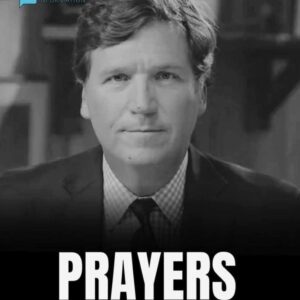In a move that has drawn sharp criticism and ignited fresh political debates, House Minority Leader Hakeem Jeffries of New York made comments that many are calling divisive, hyperbolic, and historically inaccurate. During a 10-hour “sit-in” at the U.S. Capitol with Sen. Cory Booker (D-N.J.), Jeffries labeled President Donald Trump and Republicans as “traitors,” while calling his own party “patriots.” This fiery rhetoric has raised eyebrows and brought fresh attention to the internal struggles within American politics.
The remarks were made as part of a larger Democratic effort to protest against certain Republican policies and actions. The event, which was portrayed as a spontaneous act of grassroots activism, was seen by many as a carefully orchestrated publicity stunt. In addition to Jeffries and Booker, the protest was joined by other Democratic lawmakers, as well as Rev. William Barber, a prominent activist and leader of the Poor People’s Campaign. During the event, Barber spoke of prioritizing “principles over party,” and Jeffries used this moment to invoke a comparison with Ulysses S. Grant, a Civil War-era figure known for leading the Union Army to victory.
Jeffries’ Civil War Reference and the ‘Traitor’ Label
In his impassioned speech, Jeffries reflected on a quote attributed to General Ulysses S. Grant during the start of the Civil War. “What Grant said is, ‘There are but two parties in America right now—Patriots and traitors,’” Jeffries said, setting the stage for his inflammatory remarks about the modern-day Republican Party. He continued by painting a picture of America in turmoil, much like the political climate during the Civil War, with the clear implication that Republicans are the “traitors” of the current political era.
The comparison Jeffries made between today’s Republican Party and the Confederacy of the 19th century was deliberate and provocative. By invoking a famous quote from a Republican president who fought against pro-slavery Democrats, Jeffries sought to frame modern Republicans as enemies of the state, undermining democratic values and ideals. The rhetoric drew strong parallels between the current GOP and the political forces that sought to preserve slavery and secede from the Union during the Civil War.
Historical Context and Backlash
While Jeffries’ remarks were intended to make a strong political point, they have been met with intense criticism from conservative voices and some centrist commentators who believe that such charged language does more harm than good. The comparison to traitors and patriots is seen by many as an attempt to delegitimize political opponents and exacerbate existing divisions within the country. Critics argue that this type of rhetoric only serves to deepen the ideological divide and makes it more difficult for both sides to engage in constructive dialogue.
Some have pointed out the irony of Jeffries’ rhetoric, given that he invoked the words of a Republican general who led the Union Army against the Confederacy—a war fought in part over the issue of slavery. In today’s political climate, where both major parties have evolved and shifted in terms of their policies, comparing Republicans to the traitorous Confederacy seems overly simplistic and reductive.
Public Reaction on Social Media





